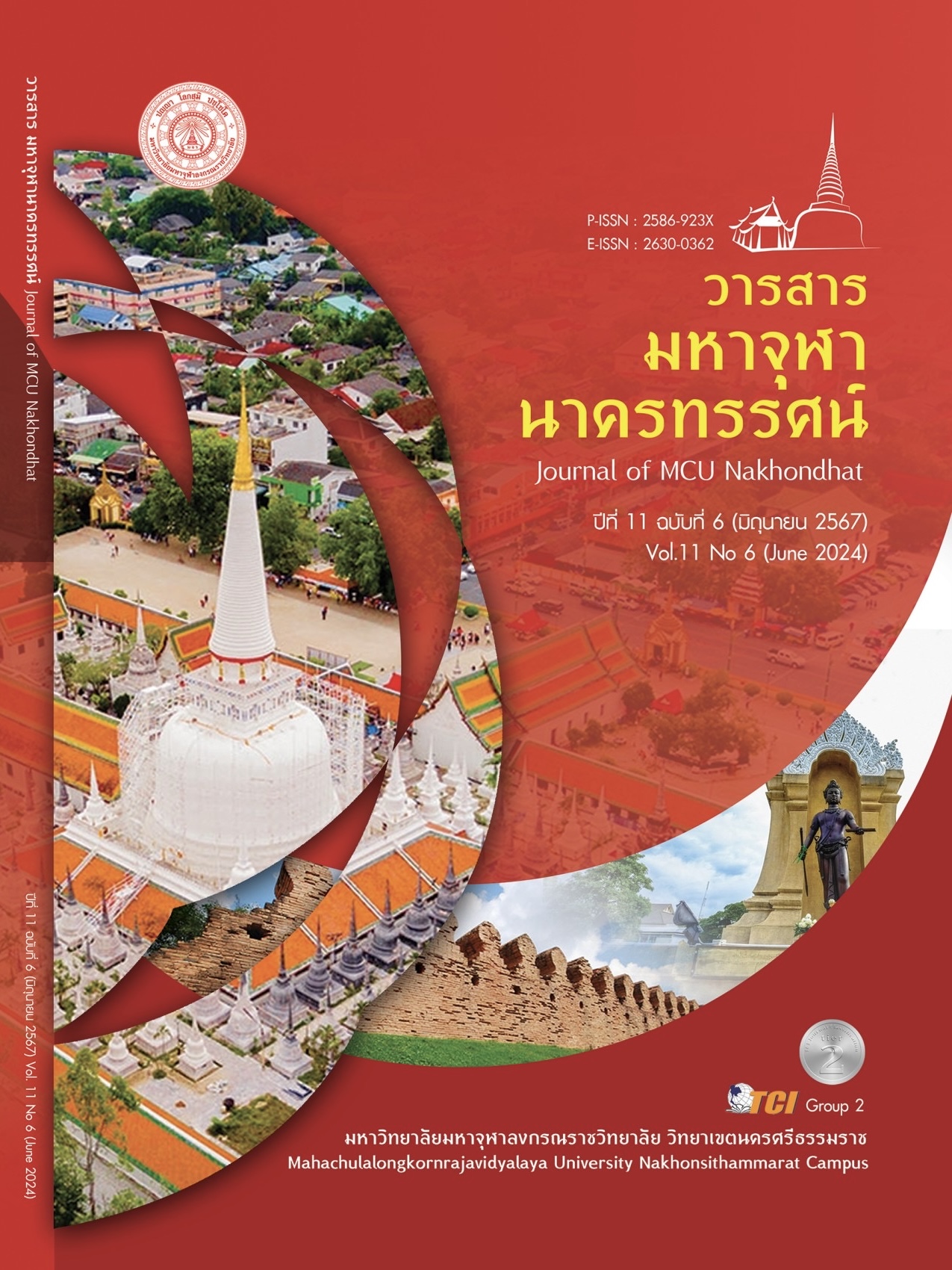PROBLEMS WITH VOTING RIGHTS OF MONKS ACCORDING TO THE CONSTITUTION OF THE KINGDOM OF THAILAND 2017
Main Article Content
Abstract
This research studies the issue of monks' voting rights under the Constitution of the Kingdom of Thailand (B.E. 2560). The objectives are: 1) To study the political rights of monks, 2) To compare monks' voting rights in other countries, and 3) To analyze the voting rights of monks under the Constitution of the Kingdom of Thailand (B.E. 2560). This is a qualitative research that gathers information from relevant documents. The researcher uses comparative theoretical concepts against the facts and sociological context of Thailand to analyze the data. The research findings are as follows: 1) The political rights of monks require them to be politically neutral and to perform their duties by advising politicians on applying moral principles in their practices. 2) Monks in Sri Lanka and Cambodia have the right to vote, consistent with the historical political contexts of these countries. However, the Republic of the Union of Myanmar exempts monks from voting rights, which contrasts with its historical context where monks have been social and political leaders from the past to the present. 3) Considering the current situation in Thai society, monks should be exempt from voting rights under the Constitution of the Kingdom of Thailand (B.E. 2560). However, monks should have the freedom to express political opinions for the public good honestly and fairly, and such expressions must not lead to social division. In the future,
if there is a collective will in Thai society for monks to have voting rights to align with democratic principles, it could be feasible. The researcher suggests further academic studies on the pros and cons and public opinions regarding the potential for monks to have voting rights under the Constitution of the Kingdom of Thailand in the future.
Article Details

This work is licensed under a Creative Commons Attribution-NonCommercial-NoDerivatives 4.0 International License.
References
บรรเจิด สิงคะเนติ. (2547). หลักพื้นฐานของสิทธิเสรีภาพและศักดิ์ศรีความเป็นมนุษย์ตามรัฐธรรมนูญ. กรุงเทพมหานคร: วิญญูชน.
บรรเจิด สิงคะเนติ. (2563). แนวคิดรัฐธรรมนูญนิยม (Constitutionalism) กับการจัดโครงสร้างสถาบันการเมือง. กรุงเทพมหานคร: โรงพิมพ์เดือนตุลาคม.
ประวีณ พันธุ์พิพัฒน์. (2559). ปัญหาสิทธิในการเลือกตั้งของพระสงฆ์. ใน วิทยานิพนธ์นิติศาสตรมหาบัณฑิต สาขากฎหมายมหาชน. สถาบันบัณฑิตพัฒนบริหารศาสตร์.
พระเทพเวที (ป.อ.ปยุตโต). (2531). กรณีสันติอโศก. กรุงเทพมหานคร: เปรียญธรรม.
พระเทพเวที (ป.อ.ปยุตโต). (2535). ธรรมนูญชีวิต. กรุงเทพมหานคร: มหาจุฬาลงกรณราชวิทยาลัย.
พระมหาวินัย (ผลเจริญ). (2543). บทบาททางการเมืองของพระสงฆ์. วารสารพุทธศาสน์ศึกษา, 7(3), 5-25.
พระมหาหรรษา (ธมฺมหาโส). (2557). แนวโน้มบทบาทพระสงฆ์กับการเมืองไทยในสองทศวรรษหน้า. ใน รายงานวิจัย โครงการวิจัยพุทธศาสน์ศึกษาของศูนย์พุทธศาสนาศึกษา. จุฬาลงกรณมหาวิทยาลัย.
พระเมธีธรรมาภรณ์ (ประยูร ธมฺมจิตฺโต). (2535). พุทธศาสนากับประชาธิปไตย. กรุงเทพมหานคร: คณะกรรมการศาสนาเพื่อการพัฒนา.
พระเมธีธรรมาภรณ์ (ประยูร ธมฺมจิตฺโต). (2538). จุดเปลี่ยนแห่งชีวิต. กรุงเทพมหานคร: ธรรมสภา.
โภคิน พลกุล. (2529). ปัญหาและข้อคิดบางเรื่องจากรัฐธรรมนูญ. กรุงเทพมหานคร: สมาคมสังคมศาสตร์แห่งประเทศไทย.
วชิรา นาวาศรีพร. (2560). ปัญหาการจำกัดสิทธิการใช้สิทธิออกเสียงเลือกตั้งของผู้เป็น ภิกษุ สามเณร นักพรต และนักบวช. ใน วิทยานิพนธ์นิติศาสตรมหาบัณฑิต สาขากฎหมายมหาชน. มหาวิทยาลัยธรรมศาสตร์.


